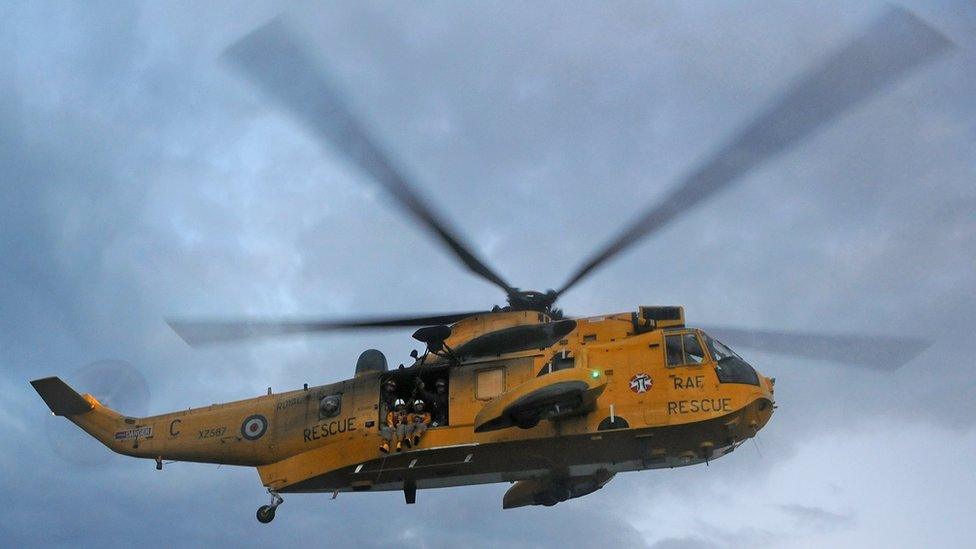Asbestos 'found after removal' in Latvia army site
- Published
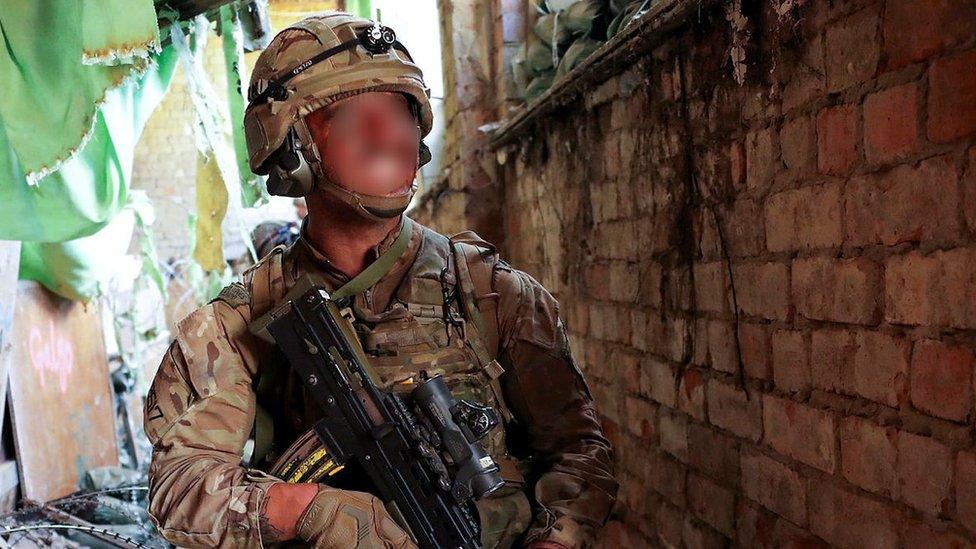
Royal Marines from 45 Commando were working at Skrunda-1 on Exercise Saber Strike in 2018
Canadian experts found loose asbestos in a Latvian base used by Royal Marines for training, after claims it had been removed, the BBC has been told.
More than 260 UK Royal Marines are taking the Ministry of Defence (MoD) to the High Court amid claims it knowingly exposed them to asbestos at Skrunda-1.
Testing by Canadian military experts in June 2022, reportedly found chrysotile asbestos in 10% of its samples.
The MoD said it took the health and safety of its troops seriously.
It added it could not comment on specific allegations due to ongoing legal action.
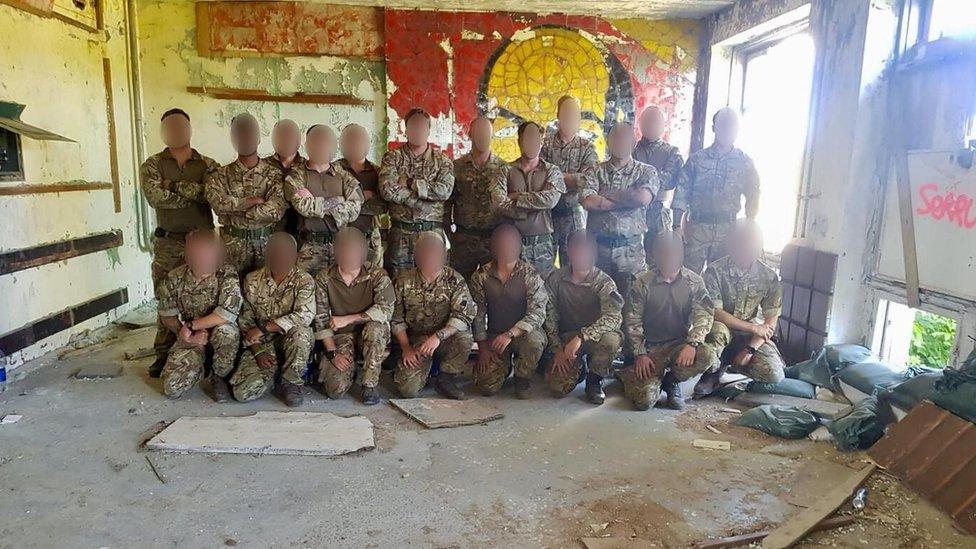
Royal Marines took part in two military exercises in Latvia in 2018 and 2019, some involving NATO allies, at an abandoned former Soviet town called Skrunda-1 (pictured inside one of the buildings)
Skrunda-1 is a former Soviet base that was used by multiple militaries, including the British and Canadians, as an urban warfare training location.
The BBC obtained information from the Department of National Defence (DND) for Canada which had sent a team of health hazard experts to Skrunda-1 in 2018 and 2022 to assess the site for asbestos.
It was reported asbestos was found in 68% of its 2018 samples and as a result, it banned its troops from working there.
The Royal Marines, who were based in Plymouth and Scotland at the time, carried out urban warfare training at Skrunda-1 in 2018 and 2019.
During the exercises the men were sleeping, eating and working within the derelict site they claimed was "riddled with asbestos" dust.
The DND said in 2022, a Canadian Battle Group medical technician was informed "that [asbestos] remediation by the Latvians had been completed".
The information included claims that buildings with asbestos-containing roofs had been demolished and flooring "previously sampled and determined to have settled dust, containing asbestos fibres, had been stripped out or cleaned".
During a follow up inspection that June, the Canadian's Deployable Health Hazard Assessment Team found asbestos in approximately 10% of its samples collected from the site, it said.
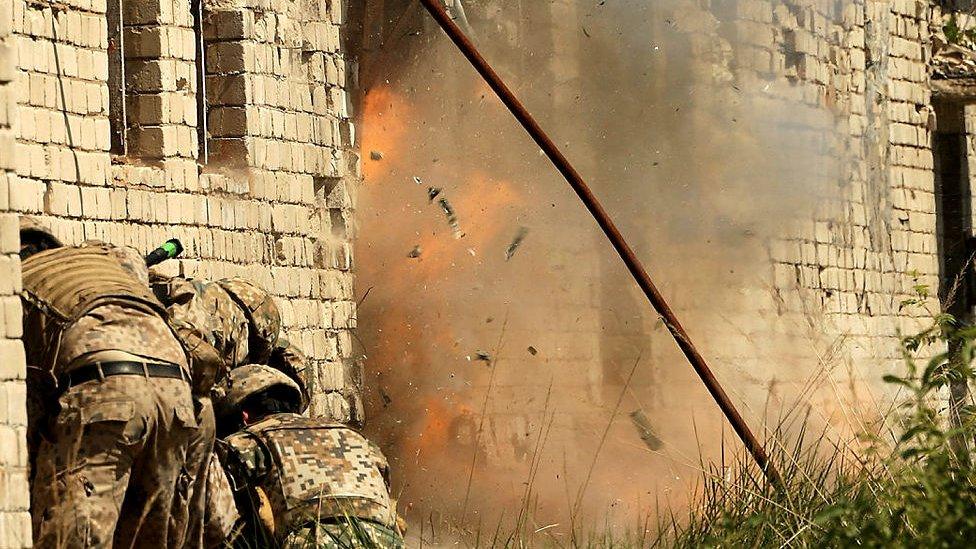
Canadian experts deemed the risk, 'given the nature of urban warfare training', remained in 2022 after claimed remedial work (Picture: Exercise Saber Strike 2018)
A spokesman for the Department for National Defence said Canadian Armed Forces members "have not and will not train at Skrunda-1 since the discovery of asbestos levels presenting a health and safety hazard".
They added: "While these results indicated that remediation efforts had substantially reduced the quantity of ACM [asbestos containing materials] at Skrunda-1, the risk of asbestos exposure to CAF members, in particular given the nature of urban warfare training, persists."
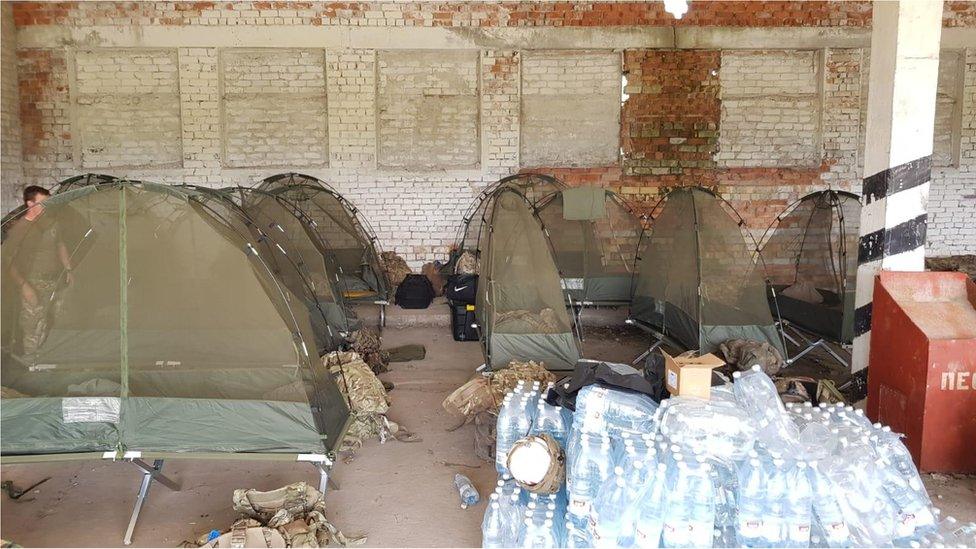
One of the accommodation areas within Skrunda-1 used during Exercise Baltic Protector
Concerns were raised by British troops to the MoD in 2019 when marines from Plymouth's 30 Commando said they were worried about asbestos exposure in the former Soviet camp during Exercise Baltic Protector.
One of the commandos collected his own dust sample for independent testing which was claimed to contain chrysotile asbestos.
They claimed the MoD had prior knowledge that asbestos was present in Skrunda-1 before the training took place involving troops from across the UK including 45 Commando in Scotland.

Ed Hill claimed he collected a sample of dust from the site in Latvia which he took for testing in an Exeter laboratory where it was found to allegedly contain asbestos
Ed Hill, who is leading the claim with the 260 serving and former Royal Marines and who was at Skrunda-1 in 2019, said he was "not surprised" by the findings.
He said: "As explosives have been used to demolish asbestos-containing buildings without a pre-demolition asbestos survey mitigation, resulting in the distribution of dust over the entire training area, I wonder if it will ever be free from asbestos and safe to use."
An MoD spokesperson said: "We take the health and safety of our service personnel and their families extremely seriously.
"We cannot comment on specific allegations which are the subject of legal claims."

Follow BBC Devon on X (formerly Twitter), external, Facebook, external and Instagram, external. Send your investigation ideas to southwestinvestigationsteam@bbc.co.uk, external.
- Published12 February 2024
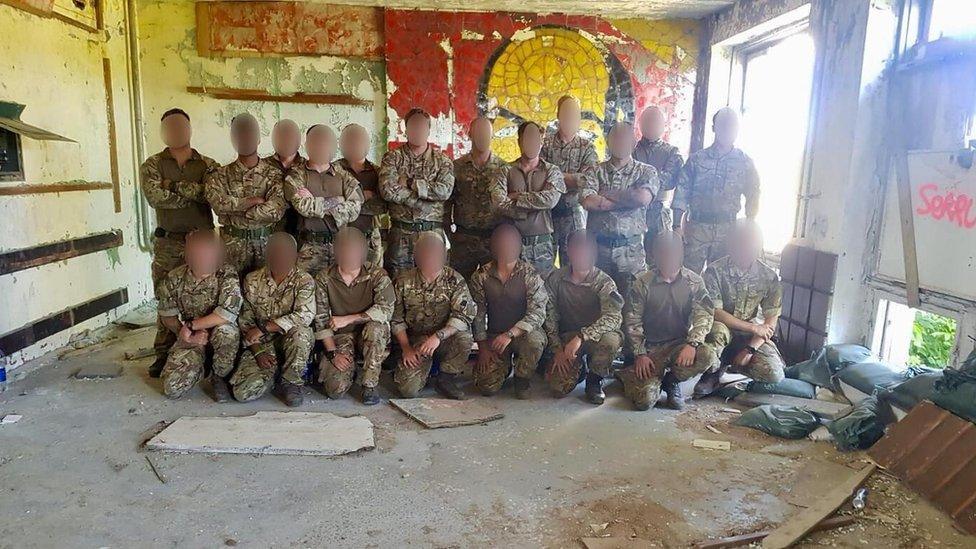
- Published26 August 2018
